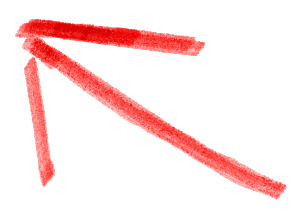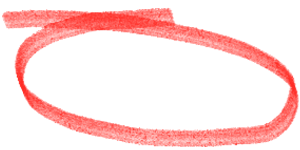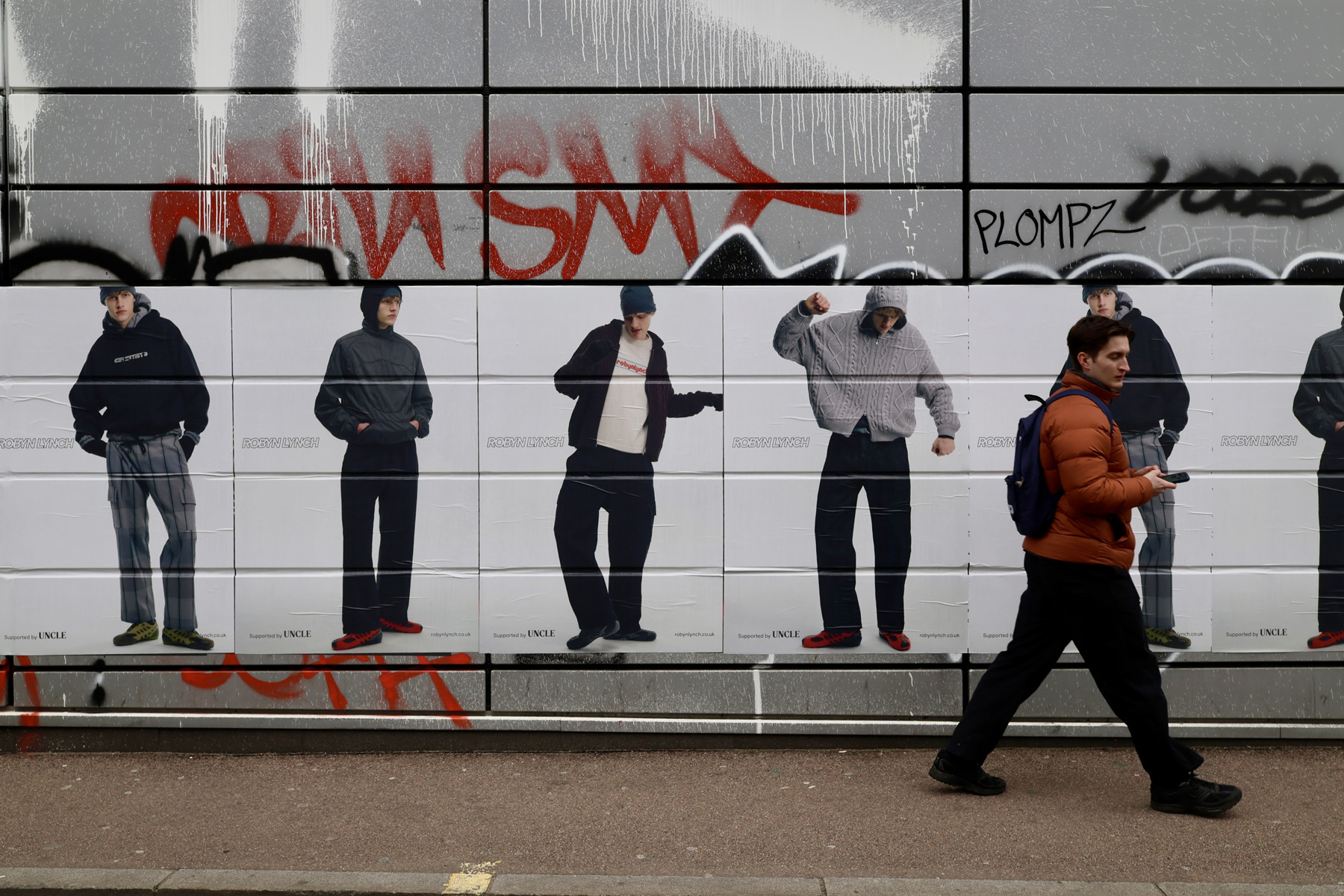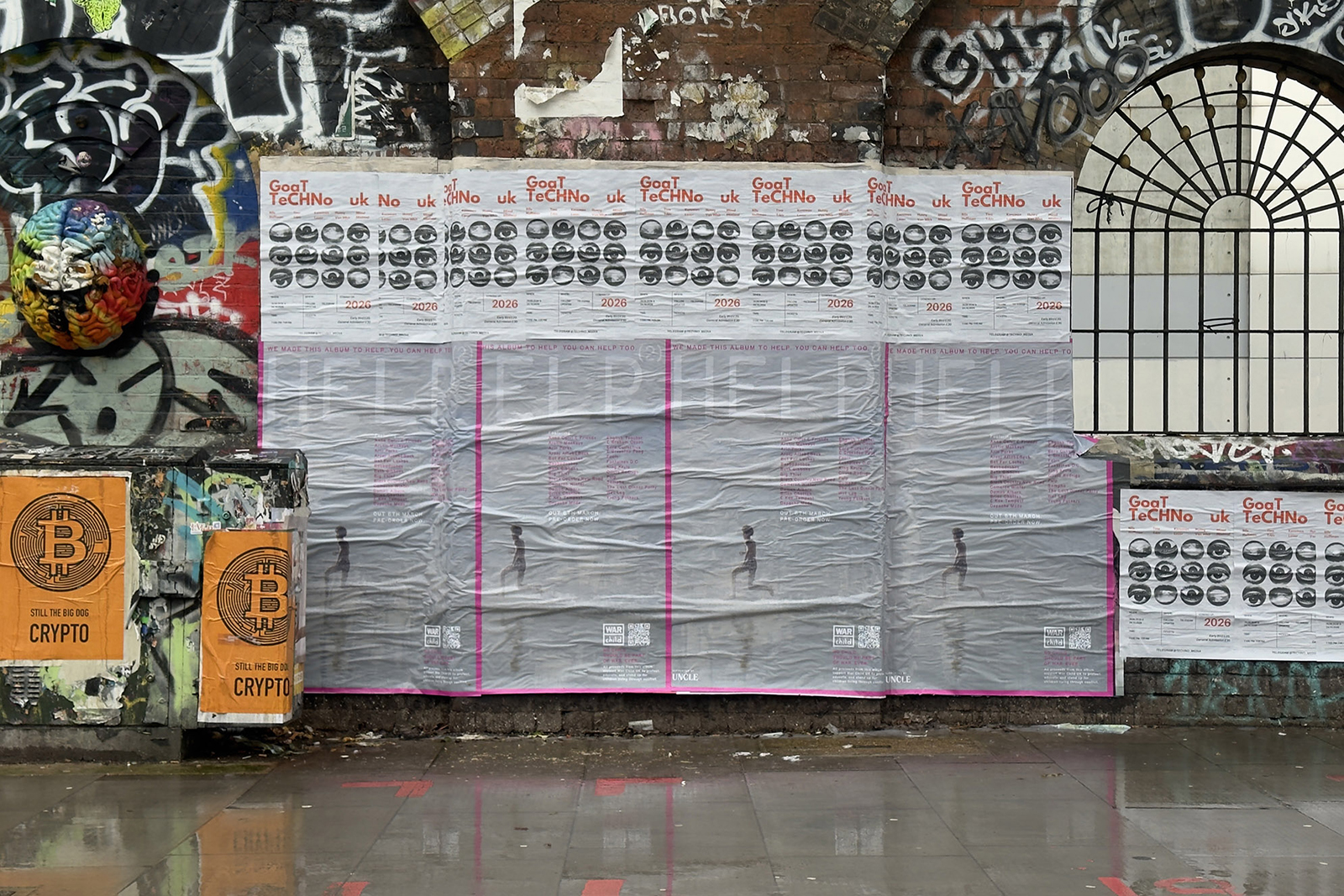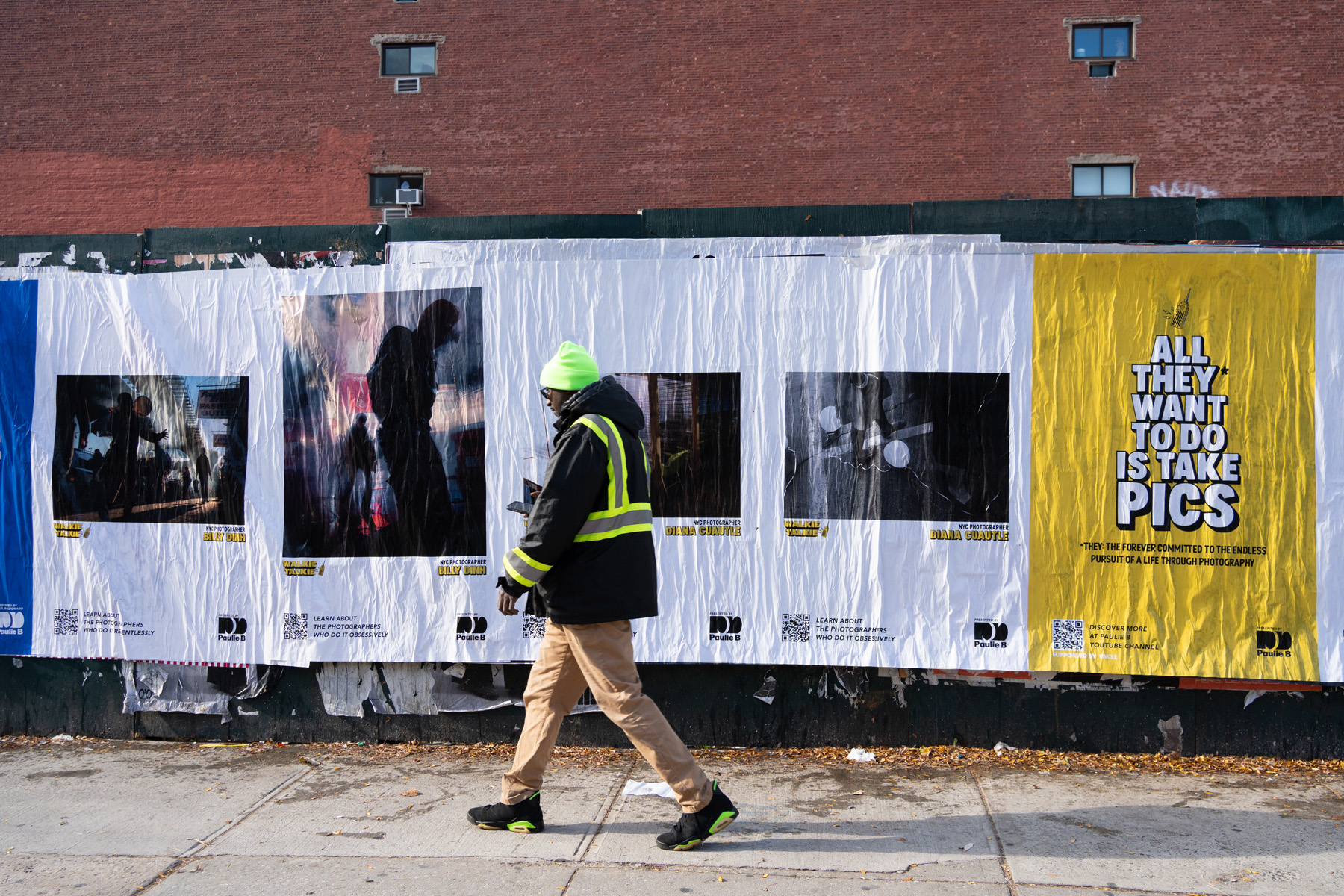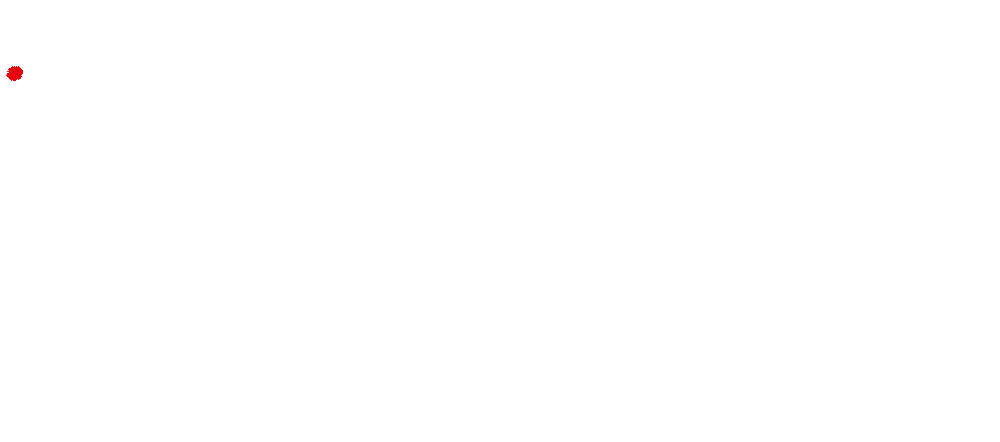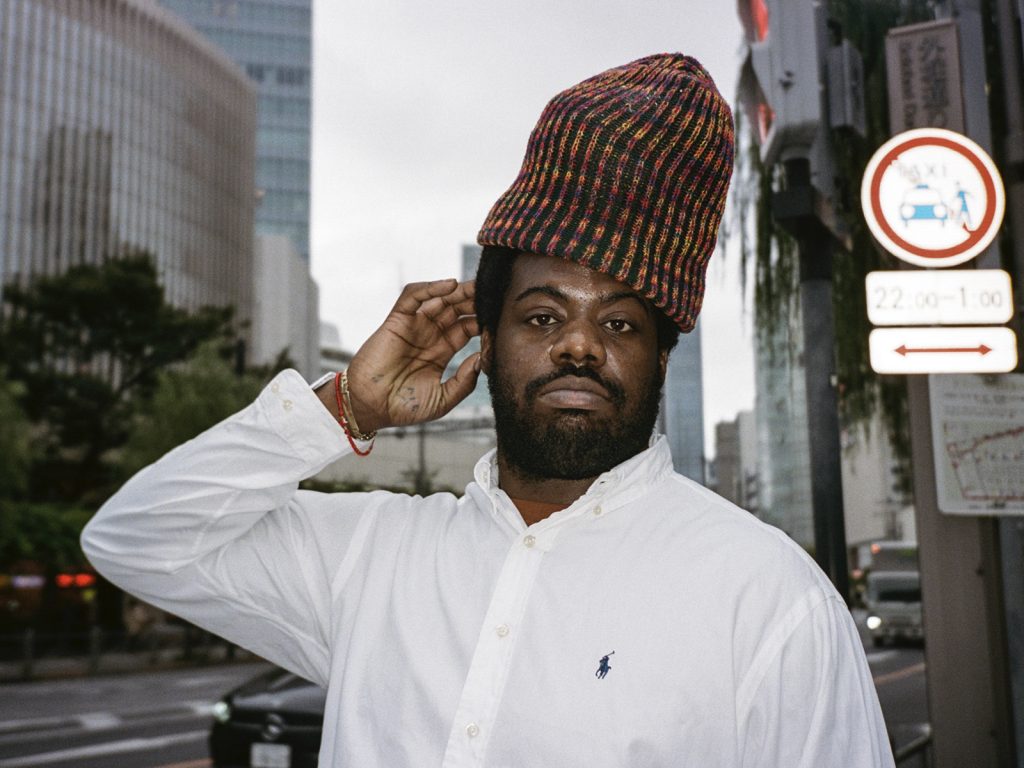
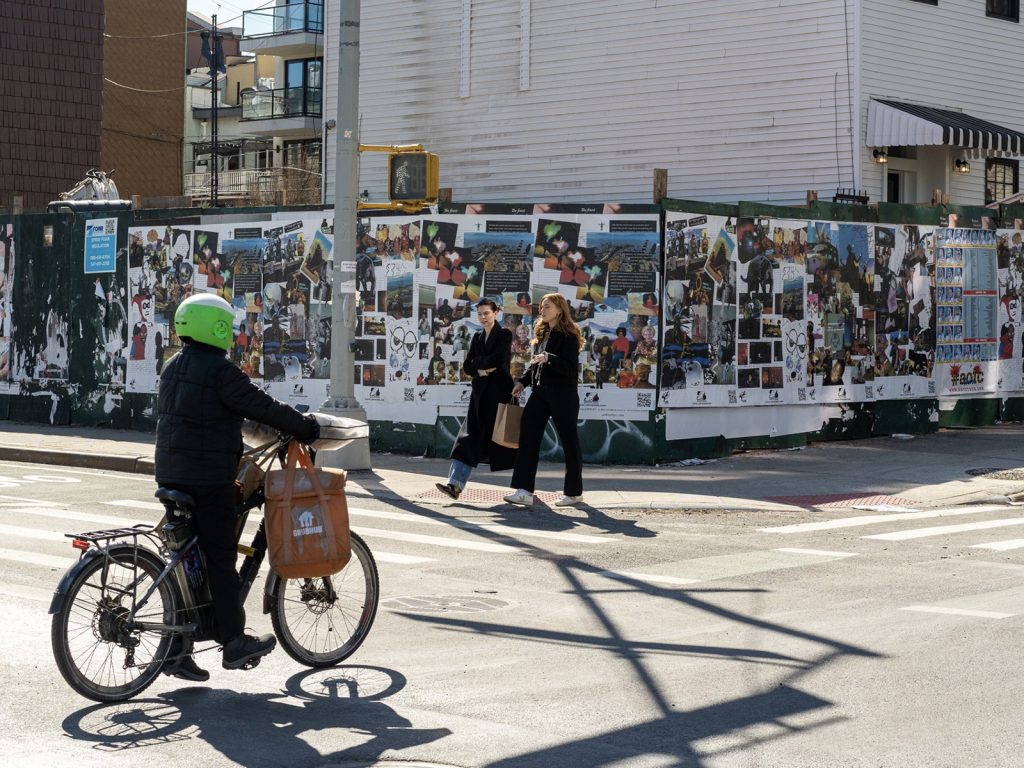
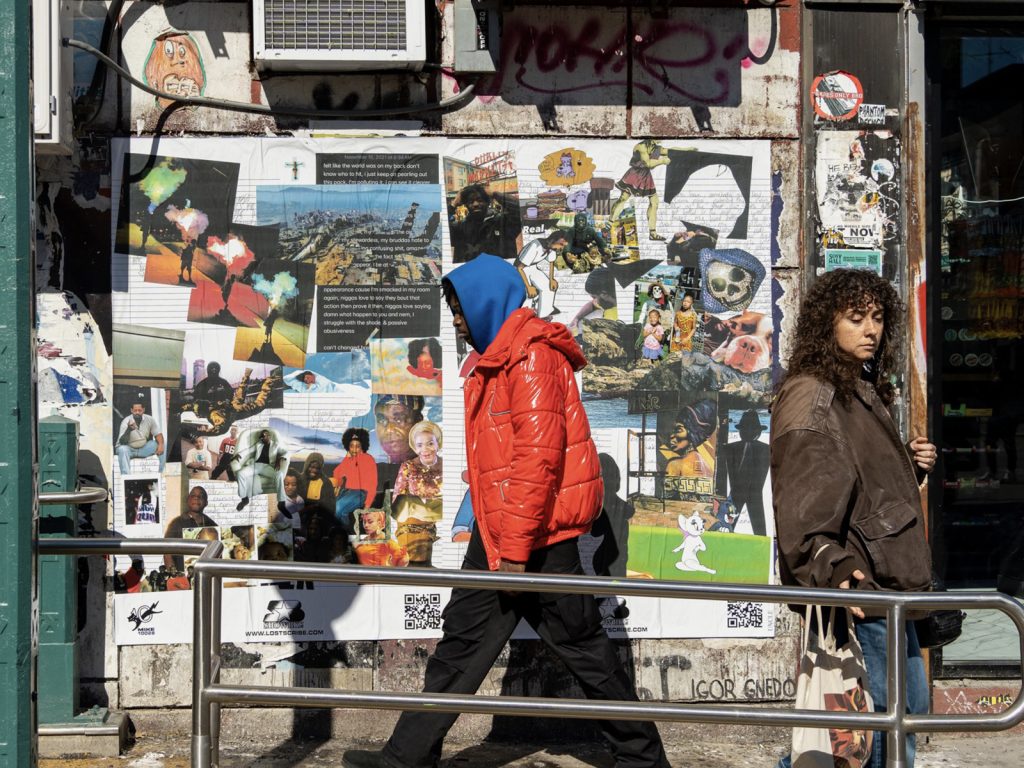
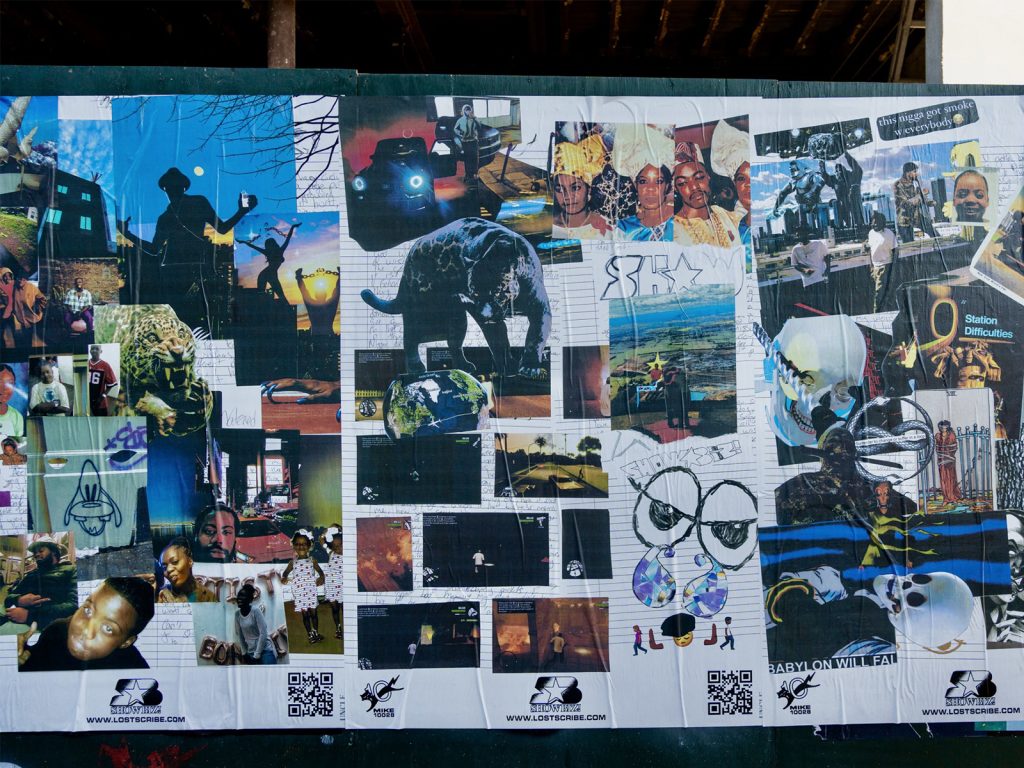
“Art is our chance to turn intangible things into tangibles.”
It’s not a question we put to MIKE directly, but his latest studio album, Showbiz!, serves as its own answer. Still only in his mid-twenties, the Brooklyn-based artist has lived a lot of life, and his commitment to the belief that music should be a lived experience is a testament to that.
`“It’s like, are you making art, or is art just a part of your life?” he asks. “I think for me, it’s always the second one.”`
Michael Bonema arrived in New York as a teenager. Having been born in nearby New Jersey, he has also spent time in Philadelphia and in London as a child. MIKE’s previously acknowledged that the now-nostalgic staple, Channel U – the British TV channel that platformed a generation of underground rap and grime artists – influenced his wide taste in music, as well as the 2000s R&B his sisters played in their home.
The rap music he makes – particularly when self-produced – has a tendency to pack two or even three different beats into one, sometimes flipping the same sample in two different ways. Something for the subway and something for a dj blackpower set (his producer alias), all within one track. ‘If I’m making a track and I feel like flipping the beat three times, I just go with it. It’s never a forced thing – it’s more about feeling,’ he says, speaking to us candidly from his home, the day after a studio session that went into the early hours of a Tuesday morning. ‘Hip-hop is already a freeform sport – you don’t have to follow rules if you don’t want to, and that’s what always excited me.
His music is shaped as much by the people and places around him as it is by his own creative impulses. Whether it’s his independent label 10k, which has grown from a close-knit collective into a globally recognised platform, or Young World, the free-to-attend New York festival that now belongs as much to the city as it does to him, MIKE’s vision has always extended beyond just making records and releasing them.
His partnership with UNCLE does more than promote this landmark tenth album. It brings 22 collages – one for each song on Showbiz! – onto the streets of New York. These pieces, designed in collaboration with a longtime friend, aren’t just promo, but an extension of the album itself – just as personal and vulnerable as the music. “The collages reflect each song and are very personal to me,” MIKE says. “I feel like the vulnerable nature of my music is something people appreciate, and this is an extension of that.”
This philosophy extends to his touring, too. His upcoming 71-date world tour is more than just his biggest yet – it’s a travelling community effort, bringing at least 24 other artists on stage across various dates, including duendita, Navy Blue, Liv.e, and Maxo, as well as label mates like Anysia Kym, Sideshow, and Jadasea. On stage, MIKE has always created space for younger artists, introducing them to like-minded crowds, while also sharing bills – and a song – with artists like Sister Nancy, the dancehall pioneer, adding an intergenerational essence to his approach.
“Everything we’re doing now is part of something bigger that’s been happening for decades,” he says. “Sister Nancy wasn’t supposed to be who she is – there were barriers, systems that weren’t built for her to thrive in. But she broke through anyway.”
“That’s how the lineage keeps going. If you’re truly part of something bigger, you can’t be scared of new people coming up. You want new contenders, because that means the culture is alive. The real ones always stick around.”
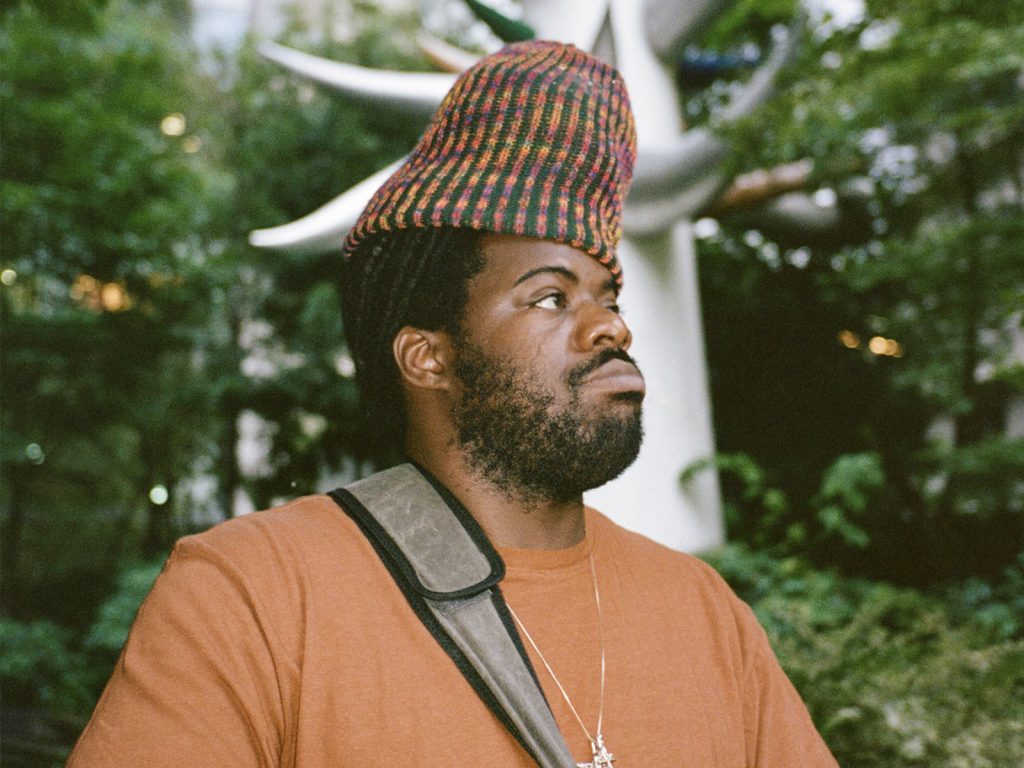
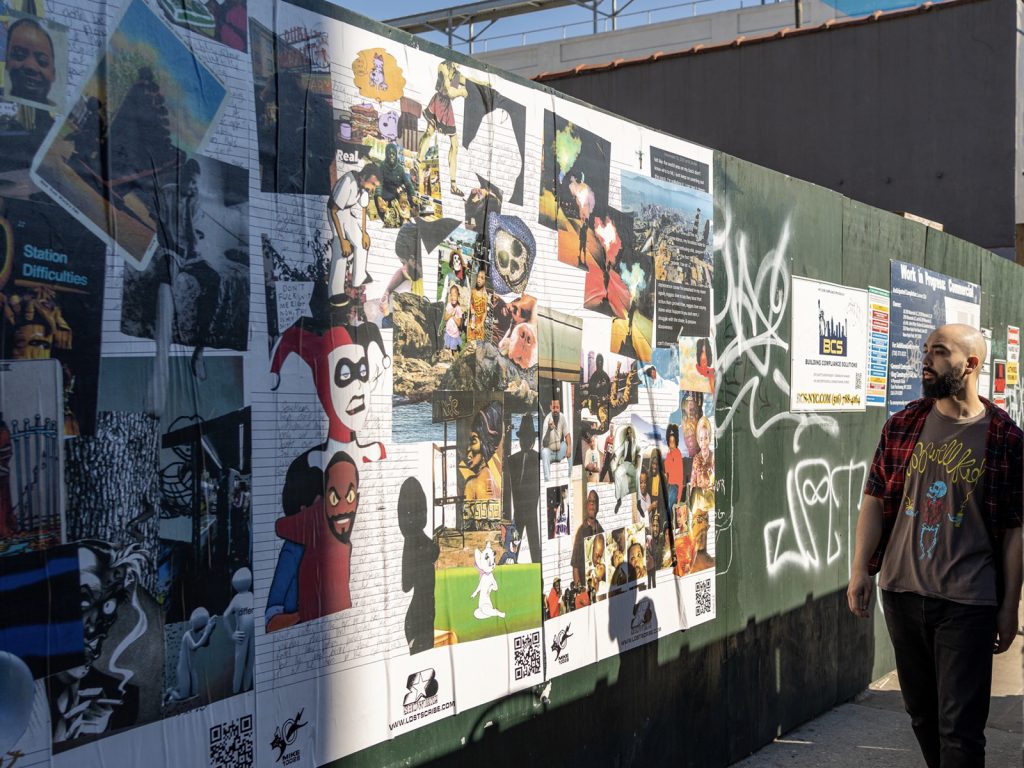
How long have you lived in New York for now?
The end of ninth grade. I graduated in 2016, and I was in New York from the beginning of tenth grade. So, 2013 – twelve years now.
Do you think moving to New York from elsewhere gives you a different perspective on things?
Definitely, but not in a way where I ever felt too much like an outsider. Nigerians, specifically, have four, five, maybe six home bases where you know you’re going to find a lot of Nigerians. I was moving around my whole life, so coming to New York wasn’t too big of a shift for me – I could already understand what was going on.
I had cousins in the city, and I used to visit them every summer. They were putting me on to what was happening – whether it was the first people to show me Pop Smoke before he was making music, or putting me on to different styles, the way people dressed. I’d be in the Bronx rocking hella Polo because that’s what I was seeing.
When I finally moved there, I was living with those same cousins, so it already felt normal. And I think moving around so much helped me figure out how to exist in different communities. Maybe not for the best reasons, but it gave me a broader understanding of how to find my people. So when I got to New York, it was easy to find my tribe.
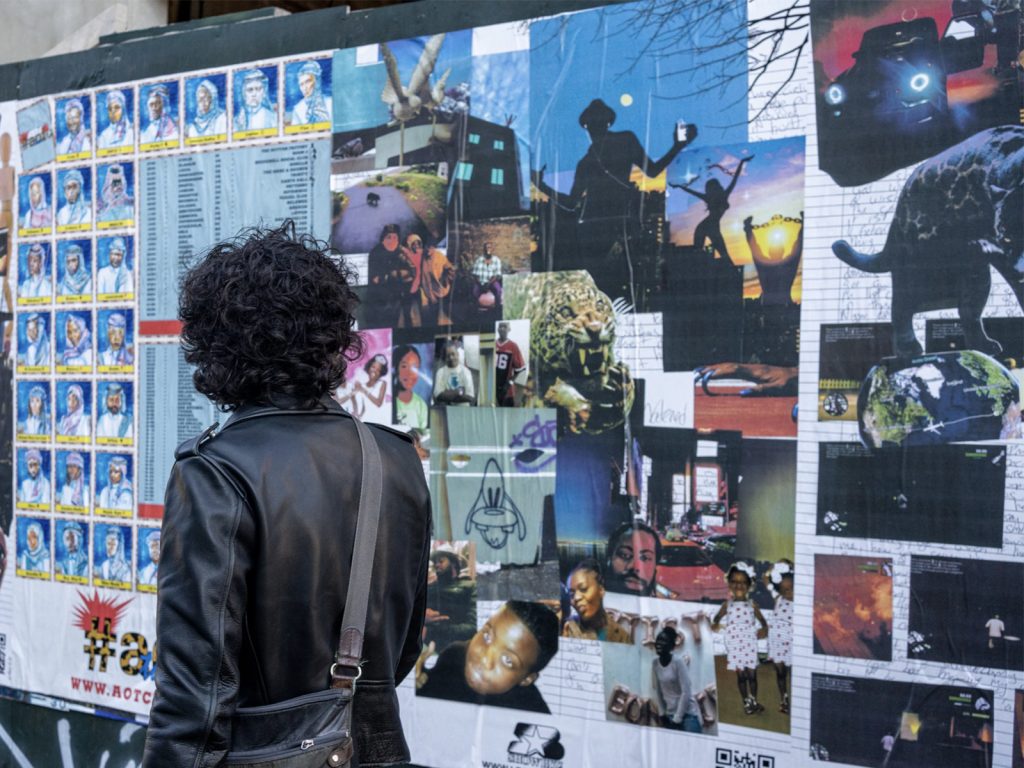
Yeah, I think every project is always a community effort. Even if it’s just me writing or working on something alone, the experiences that shape the music come from the people around me.
I’ve been working on Showbiz! since the end of 2023 and just thinking about how much life has happened in that time – it had to be a collaborative thing. There are people who’ve saved my life in different ways, and I have to credit that. It could be a homie who looked out for me, or just the small moments that shift your perspective. Everything plays a role in the music.
It’s like, are you making art, or is art just a part of your life? I think for me, it’s always the second one. The music reflects what’s happening around me, so it’s always tied to the people, places, and energy that surround it. That’s why every album – this one included – feels like more than just me.
And where does Showbiz!, The name of this project come from?
I think Showbiz! started as an idea while I was on tour. We’ve been touring non-stop for the last three years, and I’ve been making music seriously since 2017. At a certain point, it just felt like my whole life had become this—like I had fully stepped into what it means to be an artist.
For me, Showbiz! is about coming of age, not just as an artist but as a person. In four years, I’m gonna be 30, which is crazy to me because I feel like I’ve already lived so much life, but at the same time, I haven’t done shit yet. That’s what this album feels like—coming into myself, realising that this is what I do, and fully accepting it.
I was talking to my homie the other day about how parents always say, ‘Don’t put all your eggs in one basket.’ And we were like – why not? We put all our eggs in one basket because this is the only basket we got. But that doesn’t mean the basket has to be small. It can be as big as we make it. That’s what Showbiz! Is – realising that I’m in this, all the way, and there’s no backup plan.
The album’s once again released on your own label 10K. From the outside looking in, at times 10K has felt like a platform for yourself and friends to release music via. Now it feels like it’s kept that ethos, but evolved and expanded – sonically and geographically – to be a record label that can compete with other indie labels. What’s the vision for 10K?
We don’t necessarily see it as a label—maybe more like a crime organisation. [laughs] But nah, for real, from the start, we always looked at it like a mom-and-pop shop. The idea was to do everything in-house, to build something where we didn’t have to rely on the same industry systems that a lot of people feel trapped in.
A lot of it comes down to figuring out what makes us different. How do we stand next to these other labels that have the resources to do all the crazy industry shit? And I think we found that answer by just staying true to the people around us. We’ve got homies who run venues, people who handle different aspects of music and events, and a network that isn’t just about one scene or one city.
So, the vision is really just to keep building on that – to create a space where artists can drop their art comfortably and do what they need to do without all the extra bullshit. If you prioritise the art and the artist, things can be okay. And I’m grateful to be part of something that pushes that forward.
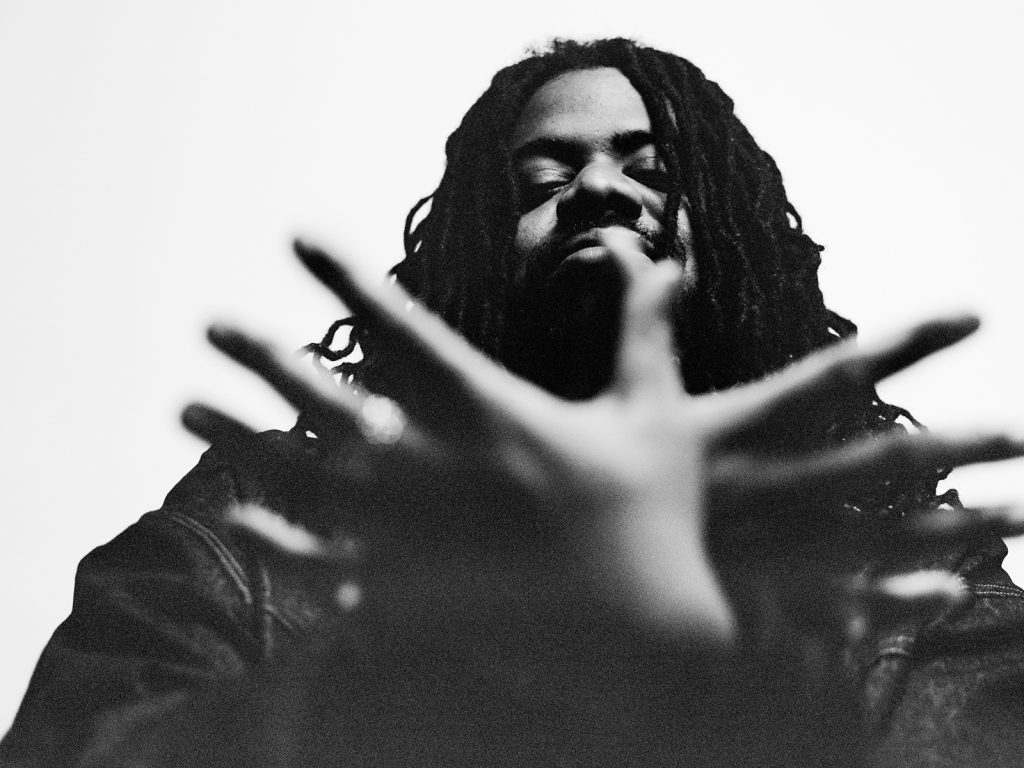
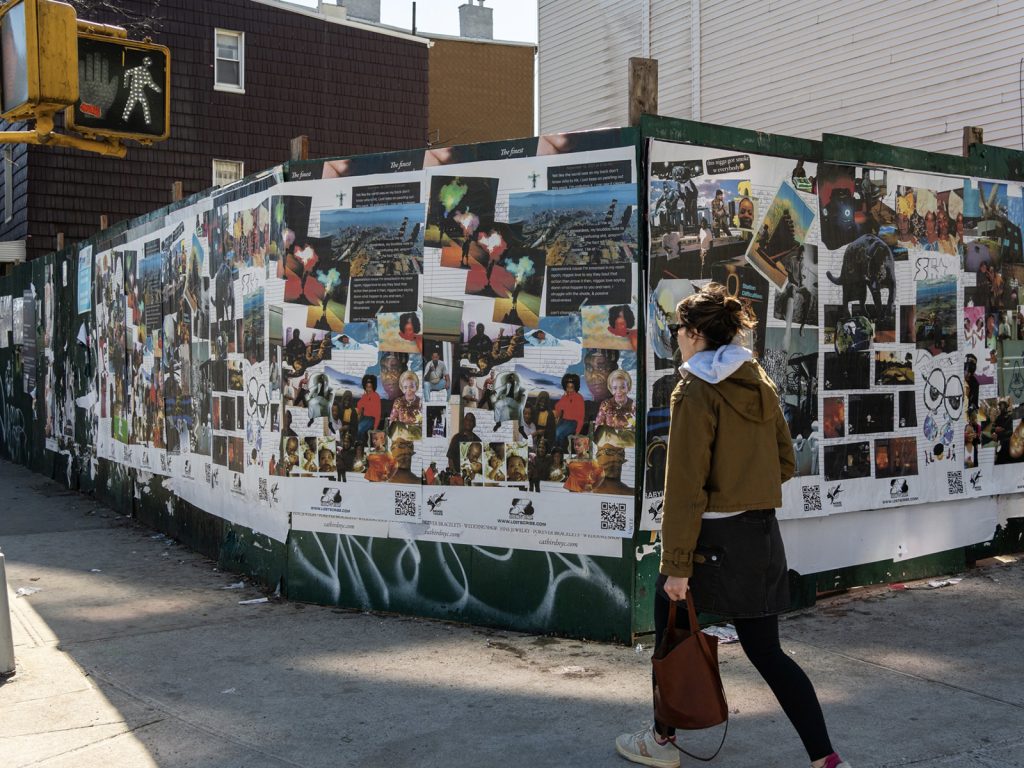
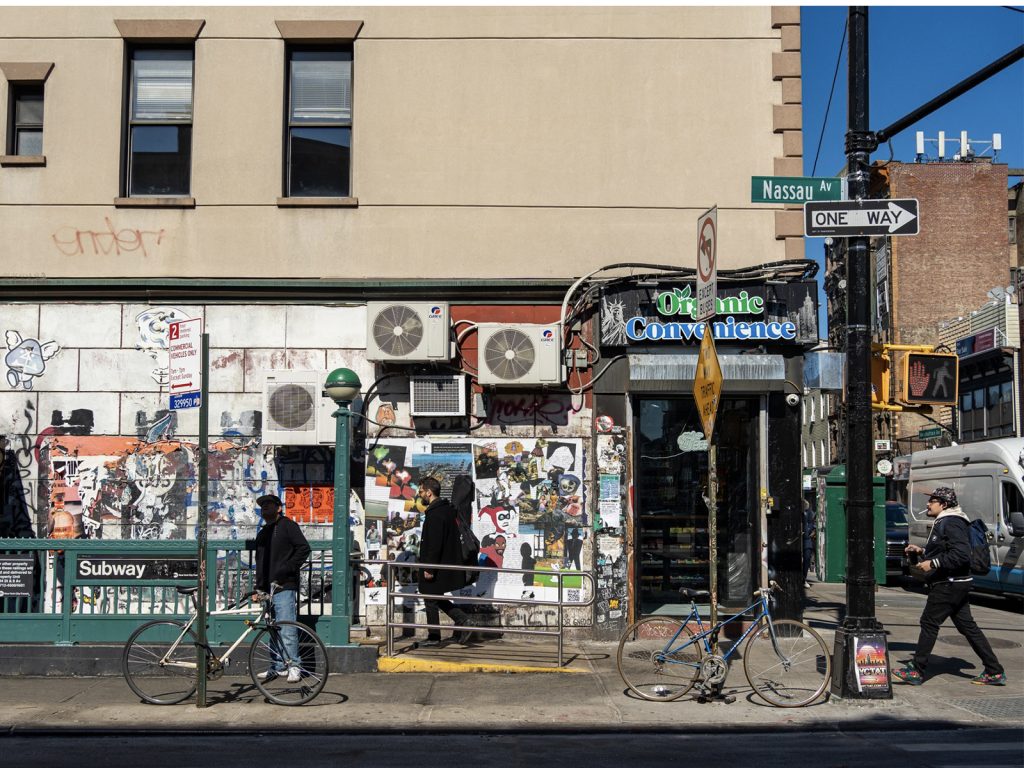
Touring is super important. Besides just performing, we’ve been hitting some of these cities for three, four years now, so it’s deeper than just a show – it’s about the people we’ve met along the way. Every time we go somewhere new, it feels like the family gets bigger.
I have this theory that one day all the good people in the world are gonna link up – whether it’s in one big-ass Instagram chat or something, I don’t know. But every time I’m on tour, it feels like that’s already happening in real life. You go somewhere you’ve never been before and realise there are people out there who relate to you, who feel the same way about things. It reminds you that this music, this whole journey, is bigger than just me.
And in terms of sustaining what I do, it’s everything. Touring is how I connect with people, how I keep growing, how I survive as an artist. Performing is one of my favourite things to do – it feels spiritual, like church or something. It’s where I feel the most like myself. On stage, you’re supposed to be the master of the ceremony, creating your own world, and I love that shit every time.
What’s special about new york as a place to come home to after all that touring?
Man, good weather, good gas, good food—that’s what I’m coming back to. We’re about to be in some weird places, so when I get back, it’s just turn-up time. But honestly, even when the world tour stops, we just hit the city and keep it going. That’s how it always is. We go around the world in the first quarter, then do everything we just did overseas back at home for the summer.
New York is special because it’s home, but it’s also not a place where you sit still. There’s always something happening, always somewhere to be. After being on the road, it’s not like I come back and just stop – it’s more like a shift in energy. The movement doesn’t stop, it just comes back to where it started.
And new york in the summer is also the location of young world, the free-to-attend festival that you’ve been organising for four years now. What inspired you to start that festival, and what’s been the most rewarding part of building it?
It actually started as a completely different idea. I wanted to do a series of shows in different warehouses, where all the stages would be set up in the middle and the crowd would circle around. That was the dream at first but figuring out how to actually make it happen led me to what Young World is now.
From the beginning, I wanted it to feel like more than just another show. I wanted it to be something that really brought people together, that felt like it belonged to the city. And over the years, I’ve seen it do exactly that—it’s a space where different generations of artists and fans all come together through hip-hop. Seeing that in real time, seeing how much it means to people, that’s the most rewarding part.
What makes new york the perfect place for a festival like this?
New York is built for something like this. It’s already a place where different generations, different cultures, and different sounds are always crossing paths. That’s what Young World is about – bringing all those worlds together in one space.
Even from the first one, when we had the deal with the art centre in the Lower East Side, it just made sense. The people involved, the energy of it, the way it brought everyone together – it all felt like a natural extension of what’s already happening in the city. When we moved it to the park in Brooklyn, it became even bigger. That was the moment where I really saw how much it meant to the community.
Now there are people who don’t even know me for my music but know me for putting on Young World. I was walking in my neighbourhood, and someone called me “the guy who does the park thing.” Didn’t even call it Young World – just “the park thing.” That’s crazy to me. Or I’ll be in the gym, and one of the security guards who’s been there for years didn’t recognise me at first, then he’s like, “Oh, you’re the guy from Young World?” That’s wild because that means it’s reaching people beyond just the ones who listen to my music.
That’s what makes New York the right place for this. It’s not just my thing anymore. It’s something that belongs to the city now.
You’ve been working with a designer to create collages for each song on the new album – these will be seen across new york as part of your collab with uncle. What do these visuals add to the experience of the album?
The visuals are just as important as the music. They tell the story in a way that sometimes the music alone can’t. Every project starts with a loose idea – something that visually sticks with me – and I let it build from there. With Showbiz!, I was thinking a lot about performance, about stepping into a role, and about how real life feeds into that. For example, I say a prayer to my mother before every show – praying that she can see it and that people enjoy it – and so I’ve been able to incorporate that tradition into this album and into the visuals ‘You’re the Only One Watching’.
The collages reflect each song and are very personal to me. I feel like the vulnerable nature of my music is something people appreciate, and this is an extension of that. It’s not just about promotion – it’s about being able to present the art in a different way, separate from the music. Art is our chance to turn intangible things into tangibles, and that’s what these visuals do. They make the emotions and ideas behind each track something you can actually see and experience in the real world.
How do you feel about bridging that gap between the digital and the real world?
It’s exciting because there’s no algorithm in real life. Anyone can walk past it, interact with it, and be introduced to something they weren’t looking for. That’s the part I love – the randomness of it.
It reminds me of how I’ve been put onto things in life. Someone shows you something, takes you somewhere, and suddenly your whole perspective shifts. That’s what I hope can happen with this – people coming across the art in their day-to-day and maybe discovering something that sticks with them.
On the topic of connecting with audiences, how has your relationship with social media evolved, particularly as an independent artist? It wasn’t too long ago that you turned your instagram off private…
Man, I’m about to go back on private. [laughs] Social media sucks, bro. But at the same time, it’s powerful. And anything that’s powerful – if it can be used for good, it’ll also be used against us. Every social media platform now just feels right-wing.
I do be a scroller, though. I rap, and I scroll. That’s really my shit. [laughs] And when you sit back and really look at it, it’s like a hamster wheel. My homies who have kids tell me about Cocomelon – how it’s just playing with their dopamine, messing with their brains. And I’m like… bro, we’re all on Cocomelon too. Social media does the same thing to us, just dressed up differently.
That’s why I try to remind myself – and other artists – that we still have free will in this. You can step away, you can use it how you need to without letting it run you.
Whether they interact with it on the streets or via the music in headphones or at a show, what do you hope people take away from the new album?
I just hope the music gives people a space to feel themselves. I want the shows to be a safe space – somewhere people can listen and maybe connect with feelings they’ve had but didn’t know how to put into words or be able to portray.
Even outside the music, with the collages or seeing it in the street, I just want people to experience something that sticks with them. Maybe it inspires them to look at their own life in a new way, or to reflect on where they are and where they’re going. That’s really all I could hope for.




